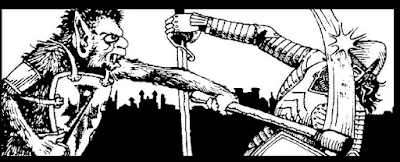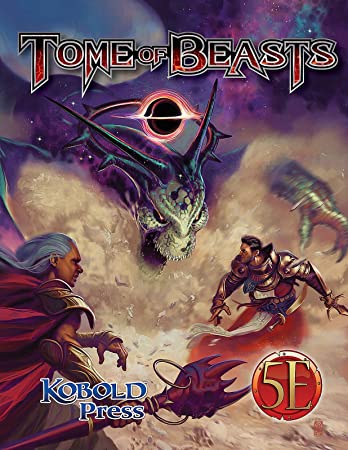You are the DM. The encounter is harder than you expected and things are going south fast. You ask yourself if you made an error when calculating the "challenge rating" (don't feel bad - CR is not an exact science and if simply doesn't work sometimes). Maybe the PCs were too inexperienced to know that a dragon is too strong for them, or maybe the dragon appeared as a random encounter - not the fault of the players! You don't want a TPK on your hands - especially if it is unfair. So maybe you change the dragon's HP, or maybe you fudge a few rolls so that the players can survive (just barely) until the monster is defeated.
Voilá - crisis averted. Let's hope the next fight is easier!
Fair enough, this is one style of play. It is popular in some circles, and quite unpopular in others (mainly OSR). Let's say it is a matter of taste.
However, there is another style: you don't fudge your rolls. Let the dice fall where they may. What happens?
First, the players will soon realize they are not safe anymore. They must pick their battles carefully, and use strategy wisely. Is it a good idea to start a fight that we don't know we can win? Maybe paying one gp for the bridge troll is cheaper than risking death. The next monster we encounter might be the "wrong" CR for us. Maybe we should talk before attacking, or maybe find out if the monster is hungry or defending its offspring.
But - worse! - PCs are subject to being attacked by a strong monster they cannot defeat in a random encounter! So they must learn to retreat, hide, negotiate, or even surrender. And, even harder, they must find ways to avoid being exposed in the wilderness for too long. Maybe ask around for rumors to see what they might find in their travels, or hire guides and even guards when exploring.
And the DM is also forced to answer some questions.
Will the NPC negotiate or accept surrender? Now, you must ask yourself WHY the NPCs are fighting. And you'll often realize not every fight is to the death. Beasts defending their territory and even automatons defending treasures are likely to stay put if you run away. Humanoids will prefer ransom to bloodshed. Undead become scarier - although outrunning a zombie is not that hard. In older versions of D&D, you could use food or gold to distract enemies - they prefer the prize to the fight.
What is the NPC looking for? Few creatures are purely killing machines, and fewer will willingly fight to their own deaths. If you don't use morale rules, use common sense - will that goblin still fight on despite seeing his nine allies fall to four strong PCs? The answer is, probably not - and when he does, it will be memorable.
And maybe the players will ask themselves what they are fighting for, and start accept surrendering, leave fleeing enemies be, and so on.
In any case, now every fight is unpredictable, not only for the players, but also for the DM! You no longer have the burden of control - you let the dice do that for you. Relax and enjoy! Use the time you usually spend fudging with math and dice to think about tactics, motives, and NPC reactions. Once you know you do not control the outcome, you can feel free to root for your favorite team (hopefully, the PCs!).
And maybe all these things will not prevent a PC from dying. Sometimes the PC has a cause he or she is willing to die for. It might be an epic ending to the PC's saga... or a tragic accident. In any case, now we will see that the game as a whole is bigger than any single PC. We can create a new PC and get around to destroy the big bad guy, or maybe this is the story about how the kingdom was lost.
As you can see, not fudging rolls is more complex than fudging. But I'd say you should try it. All these questions will spark the creativity of players and DMs alike, and it will change your game forever. You may want to go back to fudging just a few rolls later on (although in my experience this is a slippery slope). See what style you prefer.
Let me repeat a recent story. I'm currently running a written campaign, using a new RPG system the players had never tried (nor had I). In the very first adventure, they were almost wiped out by two random thugs and a ghoul. They had no fault in the matter - they couldn't have known (again, nor did I, although I had mentioned this system was dark and gritty and that the PCs were level 0). But I ran the encounter as written - and it did set the tone for the whole campaign.
It was a dark game. My opinion would be very different if I was going for a funny campaign, for example.
Anyway, there is much more to be discussed. Just how hard is to create a new PC? Maybe you don't want to spend a couple of hours every couple of session doing that (I know I don't!). Or maybe you think beginner players shouldn't be subject to PC death (and that may lead them to believe that PCs never die).
Maybe you like to leave PC death on the table, but also use tools to revert it - there might be a reason in the setting the PCs cannot die. Maybe they are cursed to fight on and on until they win, like Dark Souls or another videogame. Or change the system a bit - change the "death save DC", or rule that creatures reduced to 0 HP are just unconscious until someone willingly kills them.
I once had a game where a PC would only die if he chose to enter a battle to the death - the player would explicitly say, "my PC is willing to die for this" (this is what my house rules about
sacrifice are about, BTW)..
Or maybe you like permanent wounds and maiming, and you can offer the PC
a choice between dismembering and death when the time comes (make sure the players are on board with this before you start the game!).
And then there is resurrection, reincarnation, time travel, clones, descents into the Abyss or deals with Death itself...
The possibilities are endless - fudging dice is only one of them, and not particularly interesting in my opinion.
Further reading:
This post is another take on
this subject, and it repeats some ideas. See also:







